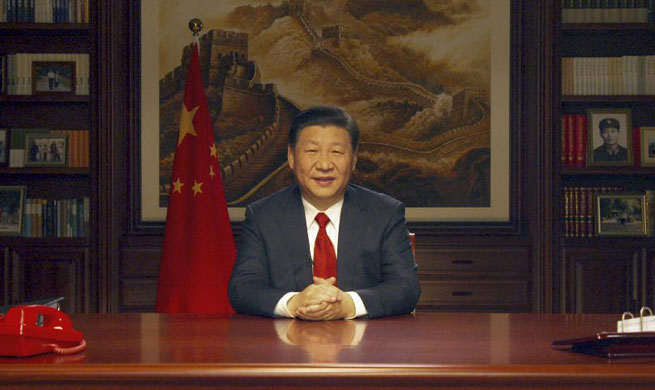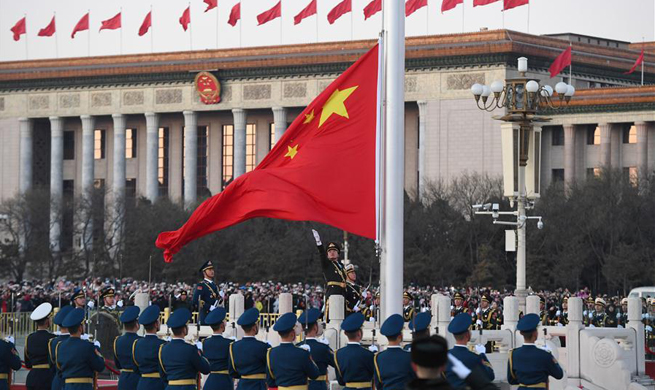SAN FRANCISCO, Jan. 2 (Xinhua) -- A U.S. coupled climate and social model predicted a global temperature rise ranging from 3.4-6.2 degrees Celsius by 2100, compared to 4.9 degrees Celsius from the climate model alone.
Researchers at the University of Tennessee, Knoxville, and the University of Maryland established a new model by drawing from both social psychology and climate science, which aims to investigate how human behavioral changes evolve in response to extreme climate events and affect the global temperature change.
The study, which was published Monday in the online journal Nature Climate Change, found that long-term, less easily reversed behavioral changes, such as insulating homes or purchasing hybrid cars, have played the most effective role in cutting greenhouse gas emissions that eventually reduced climate change.
In contrast, the more short-term adjustments made by people in their daily life such as adjusting thermostats to regulate the temperature in their homes or driving less in their routine activities did not have any significant impact on reversing climate change.
"A better understanding of the human perception of risk from climate change and the behavioral responses are key to curbing future climate change," said Brian Beckage, lead author of the study, who is also a professor of plant biology and computer science at the University of Vermont in the eastern United States.
The researchers found that extreme weather events will influence human behavior, and human behavioral changes, such as installing solar panels or investing in public transportation, will lead to changes in greenhouse gas emissions, which in turn affect the global temperature.
They hoped that their study will help communities build a foundation on which favorable policies can be adopted to cut greenhouse gas emissions.

















